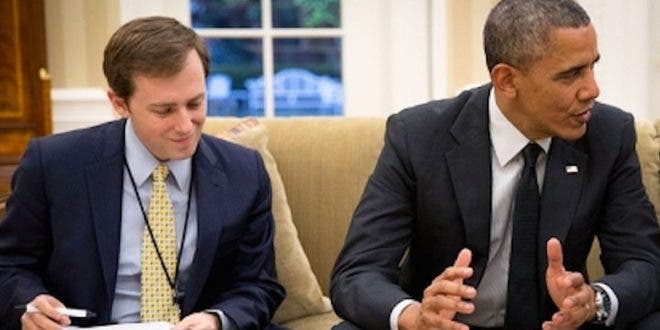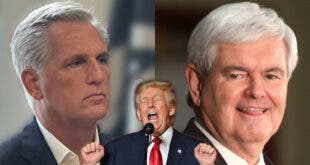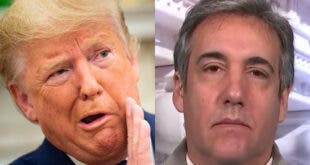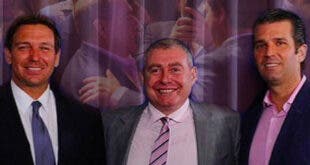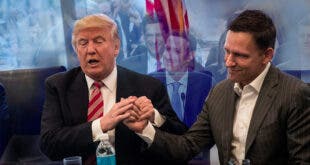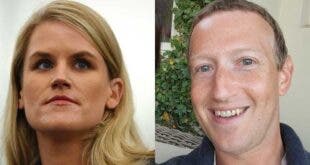Scott speaks with President Barack Obama’s former speechwriter David Litt. He’s the author of a new book that just hit bookshelves today entitled “Democracy in One Book or Less: How It Works, Why It Doesn’t, and Why Fixing It Is Easier Than You Think.” After starting work at the White House while 24-years-old, they gave David the privilege of authoring four of President Obama’s White House Correspondents dinner speeches, including the famous “drop the mic” speech that launched a thousand memes.
After leaving public service, Litt went to Funny or Die! who made him their D.C. office’s head producer while he published his first book, “Thanks Obama: My Hopey Changey White House Years.” Our wide-ranging interview includes inside details of David’s new book and behind the scenes stories about his time with President Obama. It’s a poignant picture of what an American president needs to do and what’s missing from the White House today, in addition to a manual for how we can fix our democracy.
Buy our book about the 2020 Democratic presidential nominee, Joe Biden.
Here’s the transcript:
Scott Dworkin: I’m here with David Litt, a former speechwriter for President Barack Obama. Now an author out with his newest work Democracy in One Book or Less: How it works, why it doesn’t, and why fixing it is easier than you think.
David, thanks for joining me on the podcast today. How are you?
David Litt: I’m great. Thank you for having me.
Scott Dworkin: Obviously we could talk about the Obama white house for hours and we might later, but I wanted to dive into your new book, cause I think that’s really important to what’s going on right now. First, what inspired you to write a book about democracy? And second, how did you manage to take a topic that most people consider literary veggies and managed to turn it into dessert flavored reading.
David Litt: What inspired me to write a book about democracy was the sense that it’s not going very well right now. I think that most of us have that thing that we only do because Donald Trump is president, you know, in addition to, like, panic, and I certainly have done some of that.
Although the book is about why we don’t need to panic, but I remember having this moment where it was right before the inauguration. I went down to Disney World with my wife so that we wouldn’t have to watch the inauguration on TV. And we were in Disney World, and I was like trying not to check Twitter. I was checking Twitter anyway. And I remember thinking, this is not just about Donald Trump, “Schoolhouse Rock!” did not prepare us for this.
We were in a situation where the Republicans in the Senate, fewer people had voted for Senate Republicans, and now they were about to take charge in the House. There was this wild imbalance of power; obviously, Donald Trump lost the presidential election, but thanks to our rules, he became president anyway.
And I started to ask. How does our democracy actually work? And why does it seem to be doing such a bad job of representing us? And to me, it would turn out to be a question that was not just important, but also super interesting. And you asked about the vegetables, and I went into this thinking, okay, these are kind of the vegetables of civic engagement, right?
We have to know this stuff, but it’s boring. And it’s really not. I mean, I discovered that when you look at the Senate and why the Senate is such a mess today, Honestly, one of the big problems is James Madison’s college roommate, who was a huge jerk, right? There are just all these great, weird stories from history.
I discovered that when I was writing about the Senate, filibuster, it turns out the House had a filibuster. I had no idea. And, you know, they tried when they broke the House, filibuster, literally, congressmen tried to flee the house chamber and got rounded up and, you know, they found them hiding underneath their desks.
So. To me, the story that we’re living through right now, the stakes are really high, but there are all these old stories and ways of thinking about this that actually gave me a lot of courage because we’ve always been dealing with this in one way or another. And now it’s our turn.
Scott Dworkin: And one of the first things you mentioned, the book is how you’ve given up on breaking and entering. In your thirties and also that’s actually how you stumbled into a crazy yet emblematic story about the state of America today and the Republican Senate majority leader, most widely known as Moscow, Mitch McConnell.
Can you tell our listeners a little bit about the story of your visit to McConnell’s old fraternity in Louisville from your book?
David Litt: Sure. And I should tell you when I say that I’ve given up on breaking and entering, it’s not like up until 30, I was a cat burglar, and then I hung it up. I’m not nearly that impressive sadly or that dextrous, but you know, I started this, I have to say really from square one, I had like pretended to read books in college and, you know, pretend that I knew what they were talking about.
But I was not a political science person by any means. All I knew was that when I worked in the Obama white house, it felt like Mitch McConnell understood the system really well. And he was really good at manipulating our government and changing it and more or less by coincidence, I think entirely by coincidence Mitch McConnell’s Senate career.
And my life started at about the same time, 1984 for him in 1986, for me, and looking at all the ways democracy changed in my lifetime, I kind of felt like. In the same way that if you were really into the history of chocolate, you might go to Hershey, Pennsylvania. I needed to go to Mitch. McConnell’s old frat house in Louisville and crash a party there and figure out whether I could find some kind of artifact or explanation, just something that gave me some sense of this person.
And in the end, uh, it turns out that if you’re a man in your thirties, that isn’t much—stranger slightly creepier proposition than I anticipated. So I did not get into the frat house, but I did feel like I went back, by the way, not to ruin the book’s epilogue, but I tried more than once. But I did feel like ultimately, the thing that I learned there was even on campus. There was a rumor that Mitch McConnell owns the land that his old frat house is currently on.
And I don’t know if that’s true or not. I suspect it’s probably not entirely true, but there is this pervasive sense, even among young people in a way that has nothing to do with politics that Mitch McConnell is taking advantage of for a very small group of people and everyone else is getting screwed over.
And I think that is the symbol that I ended up looking for. That’s unfortunately what our country is in danger of becoming if we don’t act soon.
Scott Dworkin: And one of the central themes of democracy in one book or less is about the literal size of government, but not in the way everyone imagined. So you spent a lot of time writing about the size of the House of Representatives, how our founders saw the body operating, and the differences between then and now. What’s your idea to help the House as an institution, and what are some of those differences, and why does it matter so much?
David Litt: So what’s fascinating about the House of Representatives is that when John Adams sort of came up with the idea for the House of Representatives, he described it as it should function, almost like a mirror of the people. So the House is not supposed to be better than we are. The House is supposed to be exactly the same as we are with all of our faults, but also all of our passions and all of our interests, the popular branch is supposed to work that way in practice.
The House has never worked that way. And the question is always why isn’t it working that way and who is it working for instead? So if you look at the House today, one of the biggest problems with the House of representatives actually is that there aren’t enough members, um, in, in 1910, that was the last time we expanded the House.
Think about the population of America in 1910. Think about the population of America today. And we still have so many more members, and it’s not just what’s happened in the last century. In the last 20 years, we’ve seen huge expansions, even in my lifetime, the average house district has 200,000 more people than it did when I was born.
And so all of that means that the House of representatives, each one of them is representing more people. So one of the things we can do, and it’s not the easiest thing to do. But it’s definitely in a perfect world. We would expand the size of the House. And that’s one of the key messages throughout the book is we should be thinking about how to make our representative government more representative.
When Mitch McConnell has been thinking about how to make it less representative. And so far, he’s been winning.
Scott Dworkin: Let’s talk about Elbridge Gerry. He was an American revolutionary, our fifth vice president of congressmen, a driving force behind the bill of rights. And he’s considered one of our country’s founding fathers, but he’s probably the least celebrated yet, often most discussed of the group, mainly for what he did as governor Massachusetts, for what she’s best down.
He’s the father of gerrymandering creating the political practice of making favorable maps to help or hurt one political party, which is named after him. You wrote about Jerry and the book. How are, how are some of his other decisions from over 230 years ago still vitally important to America’s national politics today.
And what do you think we need to do to improve upon his foundations?
David Litt: So it’s interesting. You talk about Elbridge. I have to correct you here. It’s overage, Gary, Jerry. And the G the hard G got softened over time. And the most positive I’ve ever felt about Ronald Reagan was when I found out he pronounced gerrymandering Gerry-Mandering.
I like as a budding political science nerd, I was like, ‘Yes. Okay. Lots of differences of opinion with that guy,’ but I have to respect that. And what’s fascinating about Gerry is so he was not the first person to try to draw unfair districts in order to benefit his political allies. Patrick Henry actually tried to gerrymander, even though that word was not even in existence, yet he tried to gerrymander James Madison out of the very first Congress.
So gerrymandering actually predates the American Congress. He wasn’t successful by the way, and I’m a James Madison fan, so I’m happy that Patrick Henry was not successful. If you look at something else, Gerry did, though, is actually even more important than redrawing districts in the House or in the state legislatures.
So he actually cast the deciding vote for what we have. And taught in school was the great compromise. And that’s the compromise that allowed every Senate, every state, rather get two senators, no matter whether that state has a tiny number of people or a huge number of people. And part of the great compromise was that we couldn’t change that section of the constitution.
And when you look at the effects of that, they’ve been much bigger than the effects of gerrymandering. And again, we don’t remember Elbridge Gary for that, but that turned out to be one of his most consequential decisions. Let me just say one, one quick thing here, which is that? So gerrymandering, even if it wasn’t all Elbridge, Gary is his fault.
There’s no question that gerrymandering is a bigger problem than ever. I mean, the University of Chicago, which is not a liberal institution, they looked through gerrymandering. And you know, when I was a kid, gerrymandering was slightly beneficial to Democrats than it was slightly beneficial to Republicans.
The University of Chicago found, is that gerrymandering today costs Democrats about one seat per state. Or if you look at the numbers in a variety of ways, basically Republicans get about a 20 to 30 seat headstart because of the way Democrats are organized, since Democrats now tend to live in cities.
It’s actually, even if Democrats wanted to totally gerrymander the country, it would be much harder for Democrats to do it than for Republicans. And so one of the things I wrote about in the book is for an unprecedented level. Maps decide who represents us right now. And we voters do not decide that and thinking about how to change, that is one of the most important tasks we can take on.
Scott Dworkin: Let’s switch gears and talk about the rest of the most exciting stuff you’ve done in DC. You spent most of your late twenties in the White House with President Obama. Can you share a funny or inspirational story about the president with our listeners?
David Litt: You know, I was really lucky. I started working at the White House when I was 24.
And I remember I would walk through the gates every single day, just thinking like, okay, somebody made a mistake. This is crazy. But the thing that I remember most clearly about my time in the White House, especially looking at it now, cause Donald Trump, he never laughs. Right. It’s weird. The guy never laughs.
And when I think about my time at the White House, thirdly, cause I wrote jokes for President Obama, but he would laugh a lot. And I think that was one of the things that I really, I kind of missed just had a president with a sense of humor. I mean, I’m thinking about like, One of the last times I saw President Obama, you know, we were at a, an event for the congressional Hispanic caucus, and it was a black-tie event, but no one told me.
And so I was in the elevator, standing in the corners, we leave the event and he just sort of goes, ‘Oh, so, uh, Litt, not wearing a tux, huh” And it’s just, he’s just trash-talking. But there’s this moment where I was like, ‘wait a second, I’m being made fun of by the President of the United States,’ fairly, by the way. I should have looked it up and stuff like that.
I think it is just, um, you know, it’s not the reason that Obama was a good president Rose that he made fun of a speechwriter in an elevator and a kind of fun. Casual way, but just that humanity and that ability to like joke around, man, I feel like that’s so important and we really, really miss it—just somebody who can connect with people.
Scott Dworkin: What was it like working with a production company, funny or die. And did you get to work with will Ferrell or Adam McKay?
David Litt: So I worked for funnier or die for two years. They’re a great company. And they, I met the funnier dye folks when they came into the White House to do between two firms with Zach Galifianakis.
And I will say that was not my idea. I actually didn’t think it was a good idea at all, which shows what I know. I thought it was going to end up looking like embarrassing or bad, and it obviously was great, and tons of people watched it, and it didn’t just get views. It also drove people to sign up for healthcare.gov.
And so when I left the White House and some other folks who had left my producer there, Brad Jenkins. We started funnier dye DC to try to do that for other organizations. And we work with some awesome people. I’m Billy Eichner. We work on a campaign called glam up the midterms and help drive up youth turnout.
And, you know, did our little part in the 2018 midterms stuff like that. I didn’t work with will Ferrell or Adam McKay directly, although will Ferrell showed up once at our company retreat. Right. As I thought, I had to leave early. So I bumped into welfare. Well, quite literally. Forget. He said, you know, he was like, is it okay if I touch you?
And I was like, yes, it is fine. If will Ferrell touches me and I’m not watching this blazer ever again, I was, of course, the like DC guy wearing the blazer and a button-down shirt at the funnier dye company retreat. It gives you a sense of just how incredibly cool I am.
Scott Dworkin: I’ve been the guy that’s jeans and tee-shirt and fundraisers.
And they think I’m like a billionaire or something because I know the spectrum go to a clambake or like steadies pig roast or something like that, where I go in a suit, and I’m walking in mud and one of two. Pairs of dress shoes I own but is there something from your new book or from quote-unquote, “Thanks, Obama.”
Your first book with the greatest title ever that we haven’t discussed and you’d like to share with our listeners.
David Litt: The new book, I wanted it to be the kind of book that covers everything, but you don’t have to go too deep into any one thing. So, voting rights, voter suppression, filibuster judges.
To me, the most important thing that we haven’t really covered is how fixable it all is. Because if you look at all of these things, but let’s just take voting really specifically, we’ve seen a real attack on voting. I think all of your listeners know that, and it’s getting even worse right now with COVID.
And so basically the idea is instead of winning elections, by persuading people, ‘we’re going to win elections by keeping likely Democrats from voting.’ But one federal law can change almost all of the worst practices around voting. We could have automatic voter registration or same-day voter registration.
We could get rid of it. Voter purges that take people off the rolls. We could mandate that we need more polling places. Cause polling places have been cut throughout the country. Ever since the Supreme court gutted the voting rights act, we can do all this stuff, and it’s literally one law. And the thing I described in the book is what I call the Skywalker window.
Right? That’s like the moment at the first Star Wars where Luke Skywalker has just a tiny little shot at getting the Death Star, but if you make that shot, everything changes. And at some point, we will get our Skywalker window. And if we play our cards right, if we take that shot in the right way, when we get that moment, we can change everything really quickly.
I mean, my goal in life is. I talked about all the ways Mitch McConnell has changed democracy during our lifetime. I want us to change democracy back during Mitch McConnell’s lifetime. And I think that’s doable. I think that he, within his lifetime, will know that his ultimate project did not succeed.
Scott Dworkin: I hope that you’re right. And what do you think happens to him and Trump in November?
David Litt: You know, it was always hard to sort what I think will happen with what I hope will happen. This is what we can always ask for. Right? Because most of my career, I have been a political operative, and I’m going to be getting right back into 2020 stuff.
As soon as my virtual book tour is over, the question is, is it in our hands, or is it out of our hands? And if you look at what Trump and McConnell and all of their allies have been trying to do, they try to take it out of our hands, right? They want the election to be up to big donors. And politicians who want to restrict voting rights and all these other things that we can’t control right now, because we don’t have the power, but you know what?
This is still in our hands. I think no question, most of the country gets that Trump is not a good president. There are still more people who like him than I think makes sense, but it’s nowhere near 50%. So this is a long way of saying going into the 2012 or 2008, I always say what I’d rather be us or would I rather be them for a lot of reasons, including some political ones. I would rather be us than them right now.
Scott Dworkin: David Litt, you can follow him at David Litt with two T’s on Twitter. We’ll have a link in bio for his book, and I’ll obviously tweet out his new book and his last book as well. So thank you again for joining me, David. I really appreciate it. And they safe and stay healthy.
David Litt: Thank you, you too. Thanks for having me.
 The Dworkin Report Powering #TheResistance every day…
The Dworkin Report Powering #TheResistance every day…
